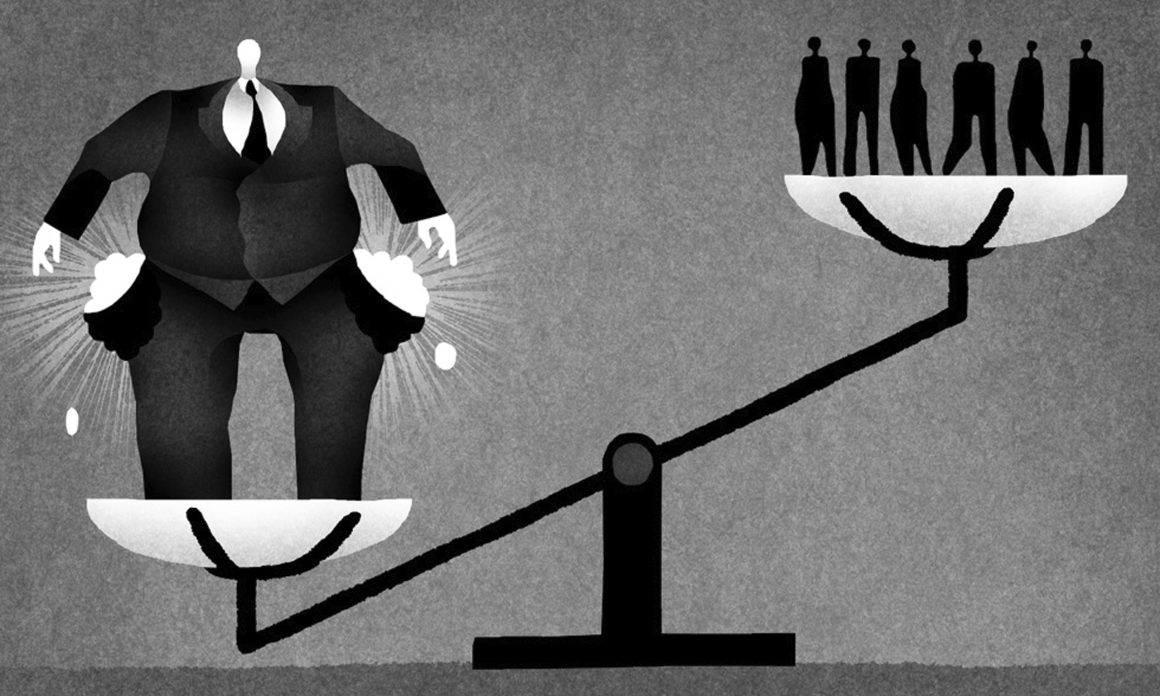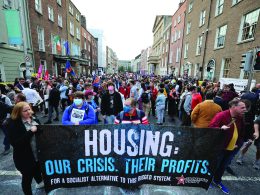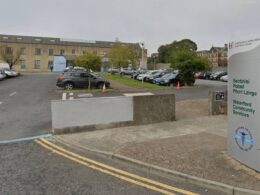By Paul Murphy TD
“Irish households have ‘never been better off’” blared the Irish Independent headline on 8 January 2018, citing an IBEC economic review. A major propaganda drive is underway to suggest that the ‘good times’ are back and that the crisis of capitalism in Ireland over the past decade was nothing more than a blip away from the ‘Celtic Tiger’ norm.
Growing inequality
Behind the bloated headline figures, a consequence of Ireland’s role as a tax haven for multinational corporations, what is actually happening is limited and extremely unequal economic growth. The crisis was utilised by the Troika and Irish government to implement structural adjustment-type policies, which have seen a further embedding of neo-liberalism. Rather than economic growth serving to give deep political stability to Irish capitalism, the resulting deepening inequality can become a catalyst for workers and young people fighting back and drawing far-reaching conclusions about society.
The good news story in Ireland contrasted sharply with the fourth fastest fall in the history of the Dow Jones when stock markets plummeted in February! The immediate cause of the crash appears to have been figures indicating moderate wage growth in the US together with the looming end of extremely low interest rates. The fact that such a collapse could be precipated by workers’ wages rising slightly is a damning indictment of a system built on exploitation. It also underlines the very weak nature of the recovery underway in the world economy.
Benefits not to be seen
Behind the headline figures of GDP growth of 4.8% in Ireland in 2017 lies a much smaller increase of personal consumption of 1.7%, showing that depressed wages are cutting the market for goods and services. Even that growth is extremely uneven – primarily between the captialist class and working class, but also between small sectors of relatively well paid workers in the multinational finance, pharmaceutical and technology sectors, and the majority of workers in the indigenous and services sectors.
The most striking illustration of the deepening of neo-liberalism is seen in relation to employment conditions, where precarity is becoming more widespread, with intensity of work also increasing across the economy. This insecure, uncertain or unpredictable work takes multiple forms, from ‘bogus self-employment’ to the widespread existence of zero hour or ‘if and when’ contract workers. A recent ICTU report, Insecure and Uncertain: Precarity in the Republic of Ireland highlighted how 8% of workers’ hours vary considerably from week to week or month to month, while 12% of workers are now self-employed with no employees. Almost a quarter of all employees are now part-time.
Threats to Irish capitalism
The most immediate economic threat to Irish capitalism in an unstable world is Brexit. A recent study produced by Copenhagen Economics predicted a loss of GDP by 2030 of between 2.8% and 7%, depending on the nature of Brexit. It will be working-class people who will be made to price for such an economic fallout through job losses, cuts to wages and attacks on conditions.
The fact that Ireland’s tax haven status is increasingly under threat is another concern for the capitalist class. There is a growing global race to the bottom in corporation tax rates as shown recently by Trump’s tax cutting policies, as the capitalist system tries to further maximise profit at the expense of public services. The European Commission wants this resolved, as capitalist competition means it does not want to give an economic advantage to US companies like Apple who have engaged in sweetheart tax deals with successive Irish governments.
The norm of capitalism in Ireland is one of deepening neo-liberal policies that is accelerating the transfer of wealth from ordinary working-class people
to big business, developers and the banks. This reality is not preparing a basis for economic and political stability, but for explosions that will put the question of the building an anti-capitalist and socialist movement of workers, women and young people on the agenda.












